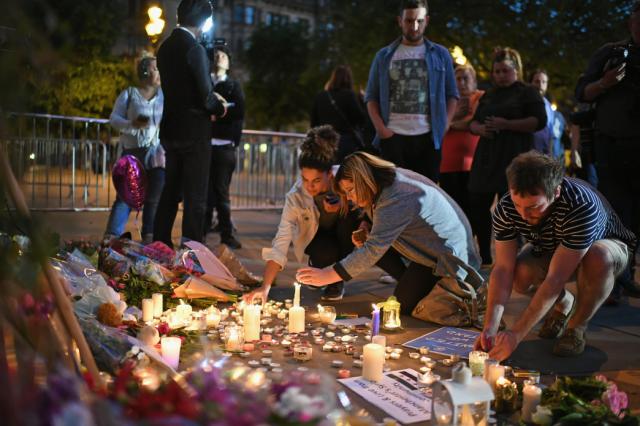Hours before U.K. authorities divulged such facts as the nature of the attack after an Ariana Grande concert at the Manchester Arena, media outlets citing unnamed U.S. officials briefed on the incident had already revealed them. The leaks continued into Tuesday, even after the Manchester police leader asked people not to speculate or share information that doesn’t come from official sources.
British Home Secretary Amber Rudd told BBC Radio 4 that she was upset that U.S. officials appeared to have leaked details to the press, and indicated that she would reconsider sharing similar information going forward.
“The British police have been very clear they want to control the flow of information in order to protect operational integrity, the element of surprise,” she said. “So it is irritating if it gets released from other sources and I have been very clear with our friends that that should not happen again.”
Her comments back up earlier speculation from a Belgian counterterrorism expert, who told BuzzFeed News that he suspects U.K. authorities are “livid” at U.S. officials for divulging confidential information.
“It happens sometimes when a larger partner like America assists on an investigation like this one,” the official, who asked not to be identified because he lacks permission to speak with the press, told BuzzFeed. “You know you are trading the additional resources they bring for a chance of increased leaks. In this case, I suspect the Brits are livid — I know we would be — to have a suspect ID’d before they’re ready, and obviously the recent performance of the Trump administration on leaking sensitive information can’t be far from anyone’s mind if they examine” the situation.
The first of the unofficial details emerged shortly after 1 a.m. Manchester time on Tuesday, when several media outlets, including NBC, Reuters and CNN, reported that U.S. officials said the attack was carried out by a suicide bomber:
At the time, Greater Manchester Police were only releasing a brief statement that outlined casualties, and said the explosion was “being treated as a terrorist incident.”
Six hours later, police released a statement from Chief Constable Ian Hopkins confirming that the attacker died at the scene and was believed to be carrying an “improvised explosive device which he detonated causing this atrocity.”
In that statement, Hopkins stressed the importance of letting his department release information when investigators deemed it safe to do so.
“We would ask people not to speculate on his details or to share names,” he said. “There is a complex and wide ranging investigation underway.”
But U.S. officials anonymously continued to bypass U.K. authorities. They shared the name of the suspect, 22-year-old Salman Ramadan Abedi, to Reuters, The Associated Press and other outlets, which published it shortly after 4 p.m. Manchester time on Tuesday.
The name was soon everywhere, forcing U.K. authorities to release the bomber’s identity sooner than they planned, The Guardian reported.
Greater Manchester Police released the name about an hour after the AP report came out.
The leaks follow revelations that U.S. President Donald Trump disclosed “highly classified information” during a meeting with Russian officials earlier this month, directing extra attention to how the U.S. handles sensitive intelligence information.
This article originally appeared on HuffPost .













